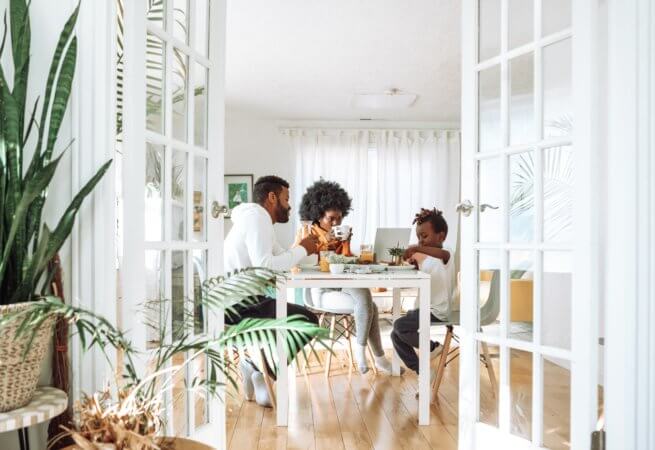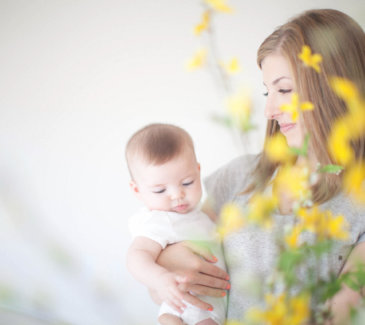I’ve been counseling children and families for 28 years. In the last decade, I’ve never seen anything soar like the rates of anxiety among kids. As of December 2020, the statistics were one in four kids; one in three teenagers. Girls are twice as likely to suffer from anxiety as boys. It truly is an epidemic. And now, we’ve got a pandemic on top of it. This pandemic has changed everything, as we’re well aware, including the rates of anxiety and kids. We’re now looking at 1 in 3 kids dealing with anxiety. And, as a therapist seeing kids on a daily basis, I would say that the anxiety is now spilling over into depression at an alarming rate.
As we all know, things have continued to shift in the past year. Before the Safer-at-Home and Shelter-in-Place orders, I was already seeing a significant spike in anxiety in my counseling office. Children were afraid of contracting the virus themselves—of their family members contracting the virus—all of the things you can imagine that you would have been afraid of at 8 or 10 or 12. Then, we found ourselves in our homes. In the first week of my remote counseling sessions via Zoom, children seemed steady in a way I hadn’t seen them possibly in decades. I was hearing stories of baking with their moms and going for long walks with their dads. I was learning about favorite family games and TV shows that they were enjoying together. Kids seemed to be feeling more secure and much less pressure. As a result, I wasn’t hearing much talk at all about anxiety. Of course, there were the few who had grandparents that weren’t heeding the warnings and were still going about their normal lives. There were children who were already fearful about illnesses, and so, of course, this only served as a further trigger. But, for the most part, children under the age of 12 were thoroughly enjoying time at home.
Teenagers in the first week or week and a half were also enjoying the time at home. They were enjoying the lack of pressure, both academically and socially. They were missing their friends a little, but mostly were enjoying the unfettered time that teenagers today rarely get to experience. The primary exception was, of course, the seniors in high school, who were grieving the loss of so much that the spring of their senior year should hold.
Today, the anxiety is returning. I’m seeing anxiety among kids of all ages, with the worst being the kids who are still at home. The population, at this point, I’m most concerned about are the teenagers. Adolescents are bored. They are lonely and, many of them, grieving the loss of normal lives. Don’t get me wrong…many are still enjoying time with family. But I’m seeing more teenagers who are holed up in their rooms staring at screens, hoping for a little more of the real feeling of connection they long for so deeply. For years, we have said, that the voices of adults gets quieter in the lives of adolescents, while the voices of their peers get much louder. For many teens, peers are one of their primary coping mechanisms. In addition, one of the fundamental developmental tasks in these years is individuating and pulling away from their parents—and teenagers today are left with no other direction to pull. They need our help, as well.
I believe that kids of all ages and stages need three things primarily today:
1) A safe place to process their emotions—with and without us
They need us to be able to hear the full range of emotions. And, depending on their age, and depending on the degree of change this pandemic has enacted on their lives, they may very likely go through the stages of grief. Denial, anger, bargaining, depression and acceptance are all important steps in the process of grieving. And, if kids aren’t given healthy outlets and places to process those emotions, they will come out in other ways. They’ll become angry at their siblings, become more anxious, have more physical symptoms and a host of other issues. They need us to not only give them opportunities to talk to us about how their feelings, but they need us to literally create spaces for them to process their emotions away from us. If I could send every child in America a care package right now, it would include a journal, pens, stress balls, bubble wrap to jump on and even a punching bag. They need physical and creative spaces to process the onslaught of feelings they are having daily, if not hourly. So do we, in fact. And they need to be able to process those feelings without us trying to correct them.
2) Access to peers
In the last few months, as the anxiety, depression and loneliness all mingle together for so many of these kids, I worry about the possibility of suicidal thoughts. Kids need each other. They need to be talking and connecting. They obviously need to be connecting in ways that are safe for your family, but they need to be connecting. Plan a parking lot get together, where the kids distance but can talk from car to car, or any host of gatherings where they can safely see and communicate with each other. It might even be the time to push yourself past your comfort level in terms of social media platforms just to give them the opportunity to see and stay in touch with their peers. Isolation is dangerous for any of us, but especially the teenagers we love.
3) Us to manage our own emotions
As the emotions of kids have fluctuated in the past year, one thing has stayed consistent. As one teenager said to me a few days ago, “When my parents are stressed, it makes me anxious.” I have talked to countless kids who have been okay, even enjoying their time at home, and their parents have hopped on the zoom call with stress and anxiety written all over their faces. In fact, I talked to one parent who is a physician who was returning to the hospital after an extended time away. She was visibly anxious on our call. She asked her daughter about her level of anxiety. When her daughter said, “I’m really fine. I know you’ll take all of the important precautions,” her mom asked again. She was much more anxious for herself than her daughter was for her. One of the most important things we can do as grown-ups, during this time, is to manage our own anxiety. And to process our own emotions.
Kids will feel angry. They will feel loneliness. They will likely go through all of the stages of grief. And then go through them again…just like we will. Still, today, just like every day in this journey of raising little people, they need us to be steady. They need us to be stronger. You won’t feel that way at times. When that happens, they need you to take care of yourself. Go for a run. Call a friend. Journal. Take a turn with the punching bag and let yourself go through the stages of grief—apart from them. You can certainly share that you’ve been sad or worried. But when your emotions are bigger than theirs, they either don’t feel like you’re strong enough to help them work through theirs or they feel that they need to take care of you. Your kids need you. You’re not going to do it perfectly. But, we all give out of an overflow of what we receive. They need you to receive truth and know hope so that you can offer it to them. And they need you to be living in the midst of grace, so that grace can spill over to them, as well. We’re all going to blow it at times. Give yourself grace and offer it to them. We’re in this together. We’re leading the way and the little emotional people we love will follow… and they’ll follow with more security, less anxiety, and more hope as we walk forward through this time with hope of our own.



